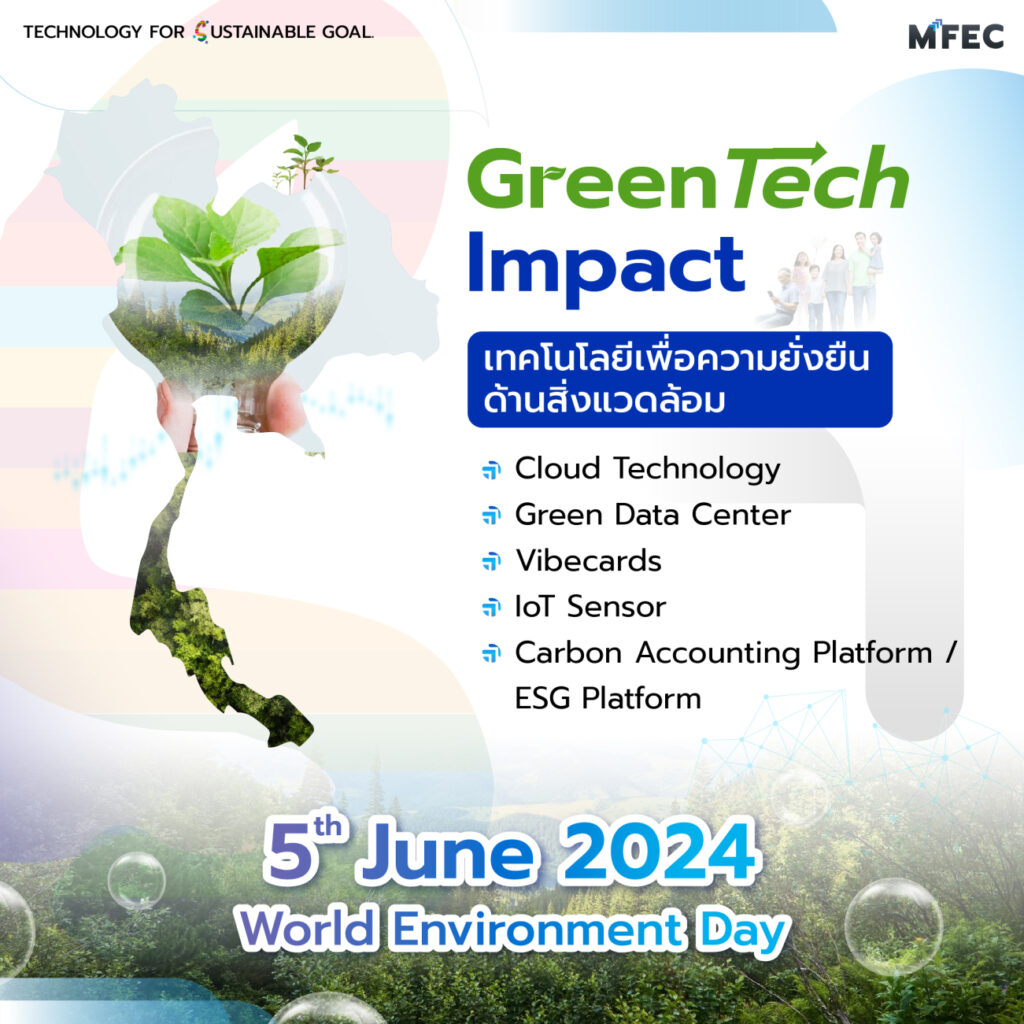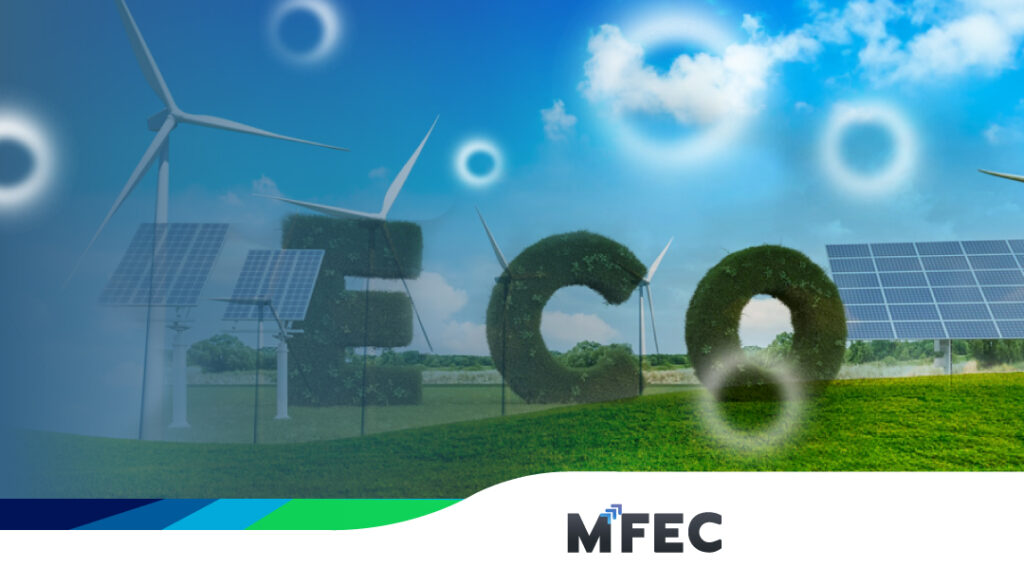Today, businesses across all sectors, from small enterprises to large corporations, significantly impact the environment. The daily use of resources like water and electricity, along with waste generation, not only affects our planet but also influences the climate, biodiversity, and people’s quality of life. When companies ignore these impacts, it leads to environmental harm and damages investor confidence, as global investors now increasingly prioritize sustainability and climate action.
Promoting Sustainable Consumption and Production
MFEC is dedicated to balancing environmental stewardship with business growth by developing products that address consumer needs responsibly. The company has established sustainable guidelines in product development, ensuring both high quality and environmental mindfulness at every stage of a product’s lifecycle—from resource selection to end-of-life management. The guidelines include:
1. Resource Selection
Carefully evaluate and select raw materials and resources for production, prioritizing a reduction in non-renewable resource use and an increase in recyclable materials. The selected materials must not disrupt ecosystems or local communities, and the use of conflict minerals is strictly avoided to prevent potential human rights violations and environmental degradation.
2. Usage Phase
MFEC focuses on designing products that leverage innovation to reduce energy and resource consumption through efficient, high-performing technologies. Product design considers repairability, upgradability, and longevity to minimize the need for frequent replacements, which will lower the environmental impact caused by electronic waste and the need for new resources.
3. End-of-Life Management
Implement a product take-back program to encourage customers to return used products for reprocessing or recycling, also provide customers with clear guidance on proper disposal methods, ensuring transparency in managing assets and equipment that have reached the end of their lifecycle.
4. Monitoring and Improvement
Regularly review and refine product responsibility guidelines to meet evolving environmental standards and maintain leadership in sustainable, low-impact product development. MFEC collaborates with suppliers, manufacturers, and environmental experts to continuously upgrade technologies and production processes. The company also raises awareness and trains employees on environmental standards and sustainable practices through ongoing activities.
“GreenTech Impact”
Using Technology to Support Environmentally Friendly Operations
In addition to establishing guidelines from resource selection to end-of-life product management, MFEC, as a technology service provider, also considers the adoption of technologies that promote environmentally sustainable operations, which include:
Cloud Technology
While software itself does not directly impact the environment, excessive energy use from IT devices leads to higher carbon dioxide emissions. Using cloud-based software instead of storing data on individual computers helps reduce energy consumption.
Green Data Center
Data centers have a significant environmental impact. Increasing the efficiency of equipment within data centers is crucial for minimizing environmental damage. Modern and smaller Flash Arrays, for instance, help save energy consumption.
Vibecards
Digital business cards, powered by NFC technology, allow users to share contact information with just a tap. This reduces paper waste from traditional business cards and helps decrease air pollution, which is a significant contributor to global warming.
IoT Sensor
Smart sensors can be installed in areas that need to collect and monitor data in real-time, to track environmental conditions such as oxygen levels and carbon content. These sensors, whether in forests, green spaces, or industrial sites, assist in managing current energy consumption and predicting future energy trends.
Carbon Accounting Platform / ESG Platform
Designed to monitor the E-S-G dimensions and manage greenhouse gas emissions through a digital platform, it helps define and review organizational strategies aimed at reducing emissions in production processes, with the goal of identifying additional methods for management and control.
Sustainable consumption and production are critical issues that every organization should prioritize. Adapting to be more environmentally friendly not only contributes to a better world but also enhances business stability and fosters investor trust in supporting sustainable development.

